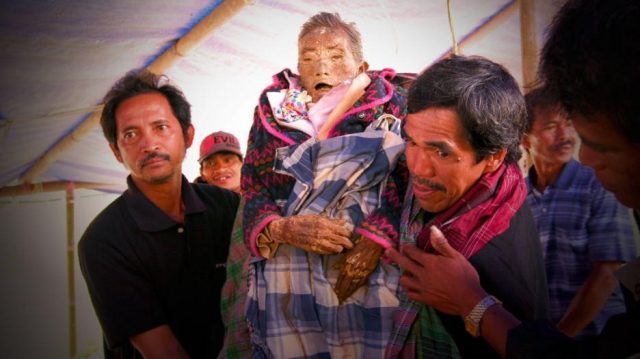Living with the Dead
Indonesia is well-known for its diverse culture and tradition which spans through decades of generation. One ethnic group has stood out among others with their unique way of dealing with grief and death. The Torajans are an ethnic group of indigenous people that lives in the mountainous region of South Sulawesi, Indonesia. For many decades, they believe that the deceased are not considered dead until the family undergo an extravagant funeral procession. Instead, they are considered to be sick and families will still serve them food and drinks because they believe the deceased are still at home.
One of the reasons why families keep the corpses in their home is because funerals in Toraja are very expensive. The procession usually includes the sacrifice of several buffalos which may cost several thousands of dollars alone. Buffalos play a key role in the Torajan culture because they believe that buffalos accompany the dead to the afterlife and guide them through the journey. In short, Torajans believe if you sacrifice more buffalos, the deceased will have an easier time to go to heaven.
The cost of a funeral may range from $50,000 for lower castes and perhaps between $250,000 to $500.000 for the upper castes. The period at which the corpses are kept at home depends on how much the family earns and how extravagant they want the funeral procession to be. Some families will often keep the dead bodies for 10 years to have enough money to hold a large funeral with lots of buffalos to sacrifice so everyone in the village can remember the deceased as a person of great importance.
Even after the deceased are finally buried in a stone grave, they are not left to rest in peace. Every two to three years, families will gather to hold a ritual known by the name “Ma’Nene’. This a ritual where relatives take the coffins out of the grave, clean the corpses, and give it a new set of clothing. Ma’nene isn’t about death, it is a celebration of love that goes beyond life.
In the eyes of the world, this tradition may be considered bizarre or even taboo. However, the fundamental purpose of doing such tradition is to remember the dead and it isn’t very different from those found in other cultures around the world.


